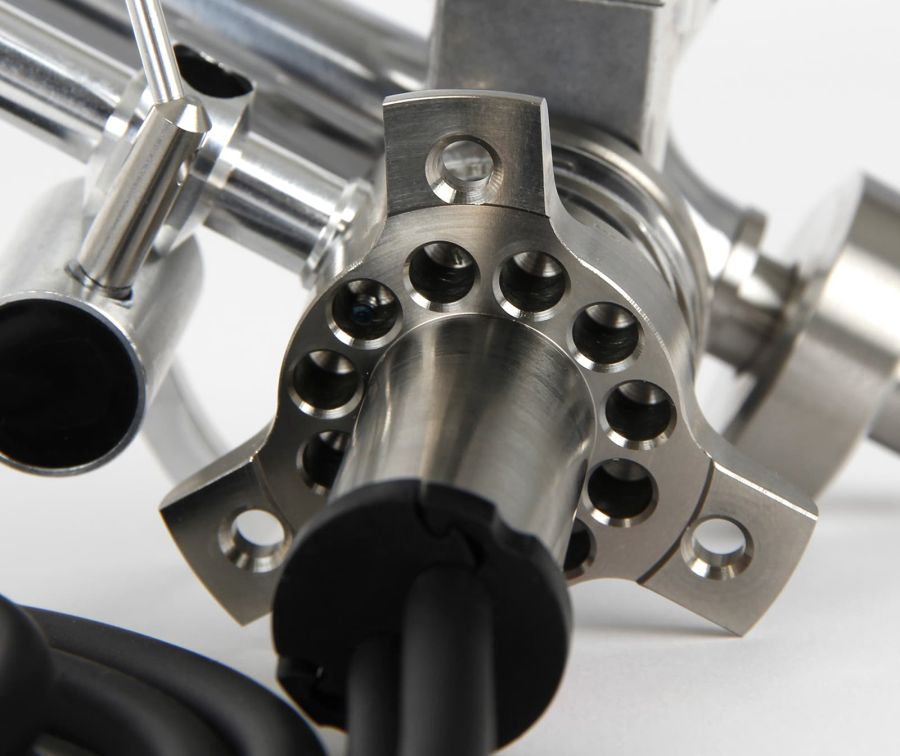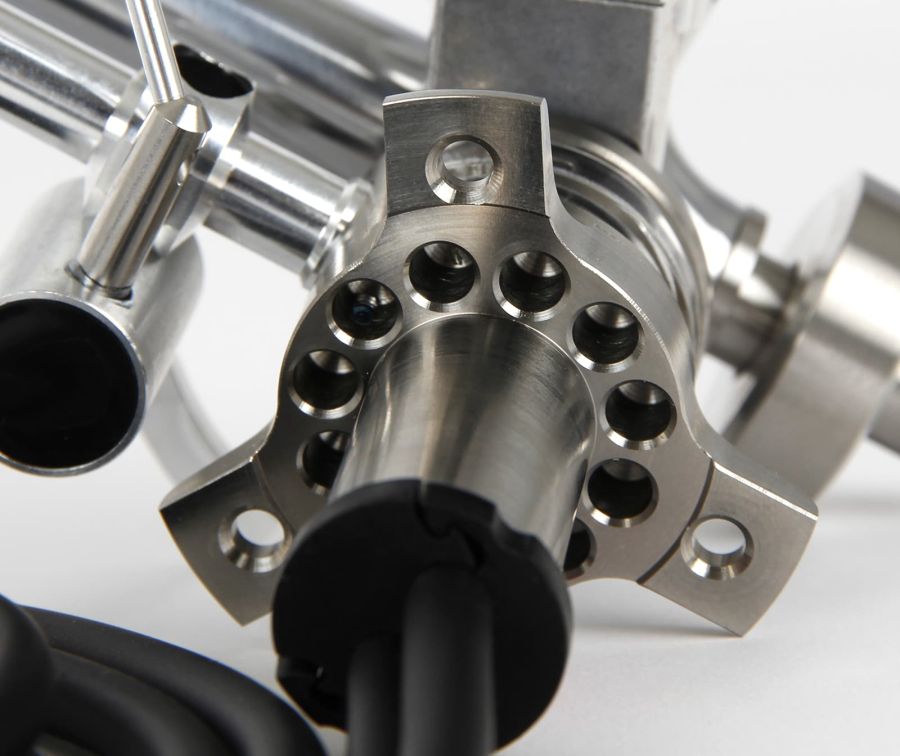Rega
Rega RB Titanium
Rega RB Titanium
In stock
Rega RB Titanium
The RB Titanium tonearm is the most advanced and accurate production tonearm we have ever manufactured. The entire tonearm structure is designed to have the minimum of mechanical joints whilst using the stiffest materials in all critical areas. The RB Titanium was originally designed to complement our highest-performing turntable the Naia, it is now available for the first time to purchase separately as a retail model.
The RB Titanium achieves near frictionless movement horizontally and vertically whilst having no measurable free play in the bearing assemblies. The RB Titanium uses a new one-piece titanium vertical bearing housing and titanium vertical spindle assembly. The design is completed with a Tungsten balance weight shaft and balance weight. The RB Titanium tonearm is packed with new features pushing the boundaries of tonearm design. As with all Rega tonearms, each one is meticulously hand-built by a team of highly skilled technicians.
The RB Titanium uses our highest graded bearings with each set being hand selected to be an interference fit with the paired spindle matching both the inside and outside diameters. This is a Rega developed method of increasing the amount of detail retrieved from the record surface, designed specifically to maximise performance of the tonearm and cartridge.
KEY FEATURES
- One piece titanium vertical bearing
- Titanium vertical spindle assembly
- Tungsten balance weight shaft
- Tungsten balance weight
- Hand polished low mass aluminium tube
- Rega designed, low capacitance high performance phono lead
- Neutrik Profi professional RCA connectors
- Lifetime warranty against manufacture defects
Rega is famed for its tonearm designs. One unique characteristic of these designs is the achievement of near frictionless movement horizontally and vertically whilst having no measurable free play in the bearing assemblies (and in reality one or two microns of pre load). So, why has Rega spent over thirty years and invested so heavily in this area of tonearm design where the removal of even microns of movement has been pursued?
Look at a stereo vinyl LP under an electron microscope and you will see microscopic ridges and bumps that the diamond stylus of the pick-up cartridge tracks and reads. The length of a ridge depends on its frequency. The height is its amplitude.
Towards the centre of an LP, a 10Khz signal is just 26 microns long and if it’s very quiet it may be less than 10 microns high. If your tonearm has 10 microns of movement within the bearing assemblies (and even very expensive tonearms usually have much more play and movement), reading the bumps will be difficult and musical vibration will be lost in arm movement.
It is impossible to quantify exactly the musical distortion or loss of measured information. This is due to the random nature of pivot or bearing movement. However, it is easy to see that accurate measurement or tracking of a 10 micron bump is not possible if the tracking stylus can move randomly at least the same distance that it is trying to measure.



